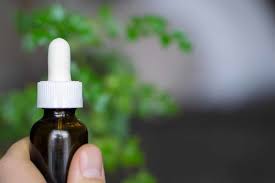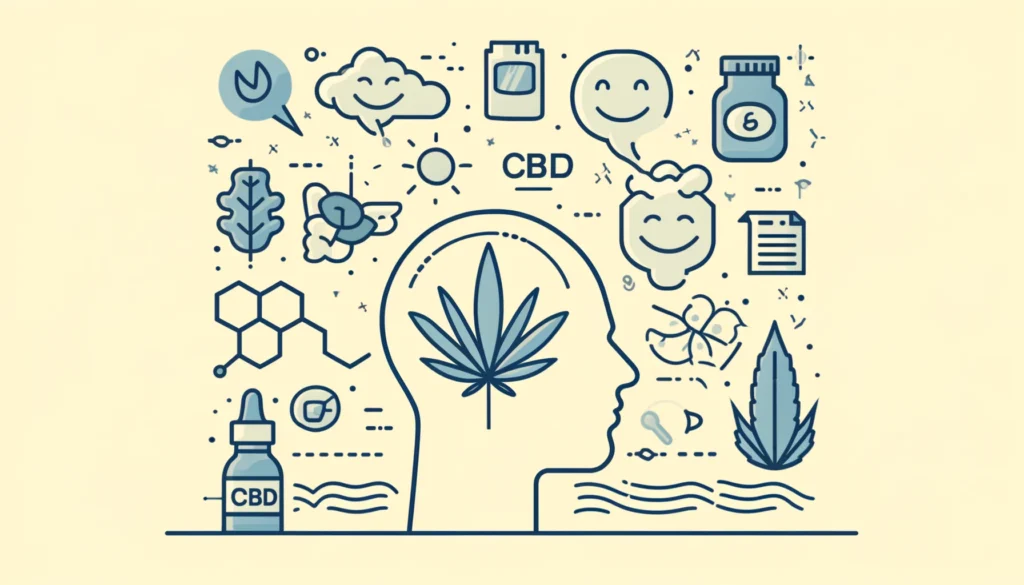Introduction
Substance use disorders, including drug addiction, present significant challenges not only to individuals but also to society as a whole. As the prevalence of these disorders increases, so does the need for effective and innovative treatment strategies. One promising avenue is the use of Cannabidiol (CBD), a non-intoxicating compound derived from the cannabis plant. This guide delves into how CBD could potentially aid in addiction recovery, offering a new hope for those struggling with substance dependence.
Understanding CBD
Cannabidiol, or CBD, is one of the many compounds found in the cannabis plant. Unlike THC (tetrahydrocannabinol), which is known for its psychoactive properties, CBD does not produce a high. This makes it an appealing option for those seeking the therapeutic benefits of cannabis without the intoxicating effects.
CBD has been studied for its potential health benefits, which include pain relief, anxiety reduction, and inflammation control. Its application in treating epilepsy has gained considerable attention, helping pave the way for its use in other therapeutic areas, including addiction recovery.
How Does Addiction Affect the Brain?
Addiction fundamentally alters the brain’s normal functioning, impacting areas responsible for reward, motivation, and emotional regulation. Substances such as opioids and alcohol modify the brain’s chemistry and neural pathways, leading to a dependency that is difficult to break. Chronic use of drugs leads to a state where the brain relies on these substances to function normally, creating a cycle of addiction.
CBD’s Interaction with the Brain
The potential of CBD in treating addiction relates to its interaction with the body’s endocannabinoid system (ECS), a complex network of receptors that regulate various physiological processes, including mood, pain, and appetite. The ECS plays a vital role in maintaining the body’s internal balance, or homeostasis.
CBD influences the ECS indirectly, which may help normalize the changes in brain chemistry associated with addiction. By modulating receptors involved in the ECS, CBD could potentially reduce cravings and lessen withdrawal symptoms, key factors in successful addiction treatment.
The Role of CBD in Managing Withdrawal and Reducing Relapse

Easing Withdrawal Symptoms
Withdrawal is one of the most challenging aspects of overcoming addiction, characterized by physical and psychological symptoms that can be severe and, at times, dangerous. CBD has been explored for its potential to ease withdrawal symptoms such as anxiety, insomnia, and pain, which are often significant barriers to treatment success.
Preventing Relapse
Relapse is a common occurrence in the journey to recovery, often triggered by stress, environmental cues, and heightened anxiety. CBD’s anxiolytic (anti-anxiety) properties are particularly relevant here. Studies suggest that CBD may help manage the stress and anxiety associated with recovery, thus potentially reducing the risk of relapse.
Incorporating CBD into Addiction Treatment Programs
The integration of CBD into addiction recovery programs should be approached with caution and should always be done under the supervision of healthcare professionals. Here’s how CBD can be integrated effectively:
- As part of a comprehensive treatment plan: CBD should complement existing treatment modalities such as cognitive-behavioral therapy and medication-assisted treatment.
- Customized dosages: CBD dosages should be tailored based on individual needs, the type of addiction, and the severity of symptoms.
- Continuous monitoring: Regular monitoring by healthcare providers is essential to adjust treatment plans as necessary and to ensure the safety and effectiveness of the therapy.
Read This- Hemp Oil: Uses, Benefits, Side Effects
Current Research and Evidence
While the therapeutic potential of CBD in addiction treatment is promising, research is still in its early stages. Most studies to date have been preclinical, conducted on animals, or small-scale human trials. The results, however, have encouraged further investigation into CBD’s effects on addiction pathways, withdrawal symptoms, and relapse rates.
Challenges and Considerations
Despite its potential, the use of CBD in addiction treatment is not without challenges. These include:
- Regulatory hurdles: The legal status of CBD varies by region, which can complicate access and research.
- Quality control: The CBD market is currently unregulated in many areas, leading to potential issues with product quality and consistency.
- Need for more research: There is a significant need for larger, long-term clinical trials to fully understand the benefits and risks of CBD in addiction treatment.
Expanding the Horizons of CBD in Addiction Treatment
As we continue to explore the role of Cannabidiol (CBD) in the field of addiction recovery, it’s essential to consider the broader implications, including legal considerations, patient experiences, and the future of CBD research. Understanding these aspects can help shape a more informed approach to incorporating CBD into addiction treatment strategies.
Legal Considerations for CBD Use in Addiction Treatment
In Canada, the legalization of cannabis in 2018 under the Cannabis Act opened doors for the use and research of CBD products. However, the legal landscape around CBD remains complex, especially concerning its use in medical treatments. It is crucial for both patients and providers to stay informed about the local and federal regulations that govern the use of CBD to ensure compliance and avoid legal issues.
Navigating Regulatory Frameworks
Healthcare providers should navigate these regulatory frameworks carefully to leverage CBD’s potential fully. This includes understanding the distinctions between hemp-derived CBD, which is typically legal due to its low THC content, and marijuana-derived CBD, which may face stricter regulations due to its potential psychoactive effects.
Ongoing Research and Future Directions
The interest in CBD as a treatment for addiction is growing, with ongoing research aiming to provide more definitive evidence of its benefits and limitations. Future studies will likely focus on:
- Long-term effectiveness: Understanding how CBD affects addiction recovery over extended periods.
- Optimal dosing strategies: Determining the most effective dosages for different types of addiction.
- Mechanisms of action: Exploring how CBD interacts with the brain and body to reduce cravings and withdrawal symptoms.
The Potential of CBD in Holistic Recovery Programs
As we better understand CBD’s mechanisms and benefits, it is poised to become a valuable component of holistic recovery programs. These programs emphasize treating the whole person, not just the addiction, and CBD’s potential to alleviate multiple symptoms simultaneously aligns well with this approach.
Conclusion
CBD’s journey in the realm of addiction treatment is still in its infancy, but the possibilities are promising. With ongoing research, patient education, and regulatory clarity, CBD could become a cornerstone of addiction recovery strategies. For individuals battling addiction, CBD may offer a beacon of hope—a natural, non-intoxicating aid in their recovery journey. As always, it is essential for those considering CBD as part of their treatment plan to consult with healthcare professionals to ensure it is appropriate for their specific needs and circumstances.
The exploration of CBD in addiction treatment represents a significant step forward in addressing the complex challenges of substance use disorders. By integrating CBD with traditional recovery methods and understanding its full scope through rigorous research, we can potentially unlock new avenues for treating addiction more effectively and compassionately.

